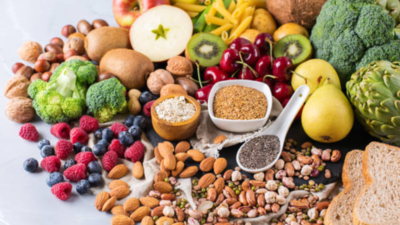The gut-brain connection and food choices play a crucial role in both mental and digestive health. The gut is often called the “second brain” because it communicates with the central nervous system through the gut-brain axis. What we eat directly affects gut bacteria, which in turn influences mood, stress, and cognitive function. Including probiotic foods, fiber-rich meals, and nutrient-dense ingredients supports better communication between the gut and brain. On the other hand, too many processed foods and added sugars can disrupt this balance. Understanding the power of food helps you nourish both body and mind naturally.
What is the Gut-Brain Connection?
The gut-brain axis is the communication link between the digestive system and the brain. This pathway uses hormones, immune signals, and the vagus nerve to send messages in both directions. When your gut is balanced with healthy bacteria, you feel mentally sharper and emotionally stable. Poor gut health, however, increases inflammation and stress, which affect mental clarity. Recognizing how strongly the brain depends on digestive wellness makes food choices even more important. Supporting the gut microbiome becomes essential for both physical and emotional balance.
Role of Gut Microbiome
The gut microbiome is a community of trillions of microbes living in the digestive tract. They produce neurotransmitters like serotonin and dopamine, which regulate mood and focus. A diverse gut microbiome strengthens immunity and reduces inflammation. Foods that damage this balance, such as processed foods and refined sugar, lead to mood swings and poor digestion. On the other hand, probiotic foods like yogurt, kimchi, and sauerkraut replenish healthy bacteria. The stronger your gut microbiome, the smoother your gut-brain connection works, supporting better memory, mood stability, and resilience against stress.

Probiotic and Prebiotic Foods
Probiotic foods add healthy bacteria to the gut, while prebiotic foods feed those bacteria. Yogurt, kefir, miso, and fermented vegetables help restore microbial diversity. Bananas, garlic, onions, and asparagus are excellent prebiotic foods that keep gut bacteria active. When combined, these foods create a balanced digestive environment that supports the gut-brain axis. Including both in your daily diet can reduce anxiety, improve sleep, and promote overall well-being. Unlike supplements, natural food sources offer added vitamins and minerals. Making space for probiotics and prebiotics in meals ensures the gut-brain connection remains strong and resilient.
Impact of Processed Foods and Sugar
Too many processed foods and high sugar intake harm the gut-brain connection. They reduce microbial diversity, increase inflammation, and interfere with neurotransmitter production. Fast food, sugary snacks, and packaged meals may bring quick energy but eventually cause fatigue and irritability. Replacing them with whole grains, fresh vegetables, and balanced meals helps restore gut health. Limiting sugary drinks and refined flour products makes digestion smoother and keeps the brain alert. The fewer processed meals you eat, the healthier your gut-brain balance becomes.
Nutrients That Support the Gut-Brain Axis
Certain nutrients strengthen the gut-brain axis. Omega-3 fatty acids from fish, chia seeds, and walnuts reduce inflammation and improve brain signaling. Magnesium-rich foods like spinach, pumpkin seeds, and almonds calm the nervous system. Fiber-rich foods such as oats, beans, and apples feed beneficial gut bacteria. Polyphenols from berries, green tea, and dark chocolate act as antioxidants that protect both gut and brain. A diet rich in these nutrients keeps your microbiome strong while boosting mental focus. Consistent intake builds long-term emotional and digestive resilience.
Lifestyle Habits Along with Diet
Diet works best when paired with supportive habits. Regular physical activity enhances digestion and lowers stress hormones, improving the gut-brain connection. Quality sleep strengthens gut bacteria and sharpens memory. Mindful eating reduces overeating and helps nutrient absorption. Hydration supports both bowel movement and brain clarity. Building small daily routines around food, movement, and rest ensures the gut-brain axis stays balanced. Lifestyle choices, when aligned with nutrition, maximize overall health benefits.
Conclusion
The gut-brain connection and food choices shape how we think, feel, and function daily. A diet rich in probiotic foods, prebiotic foods, and essential nutrients enhances mood and digestion. Avoiding processed foods and focusing on natural meals builds stronger gut health. With mindful eating and balanced lifestyle habits, you support both the brain and the gut, creating harmony for long-term wellness.
